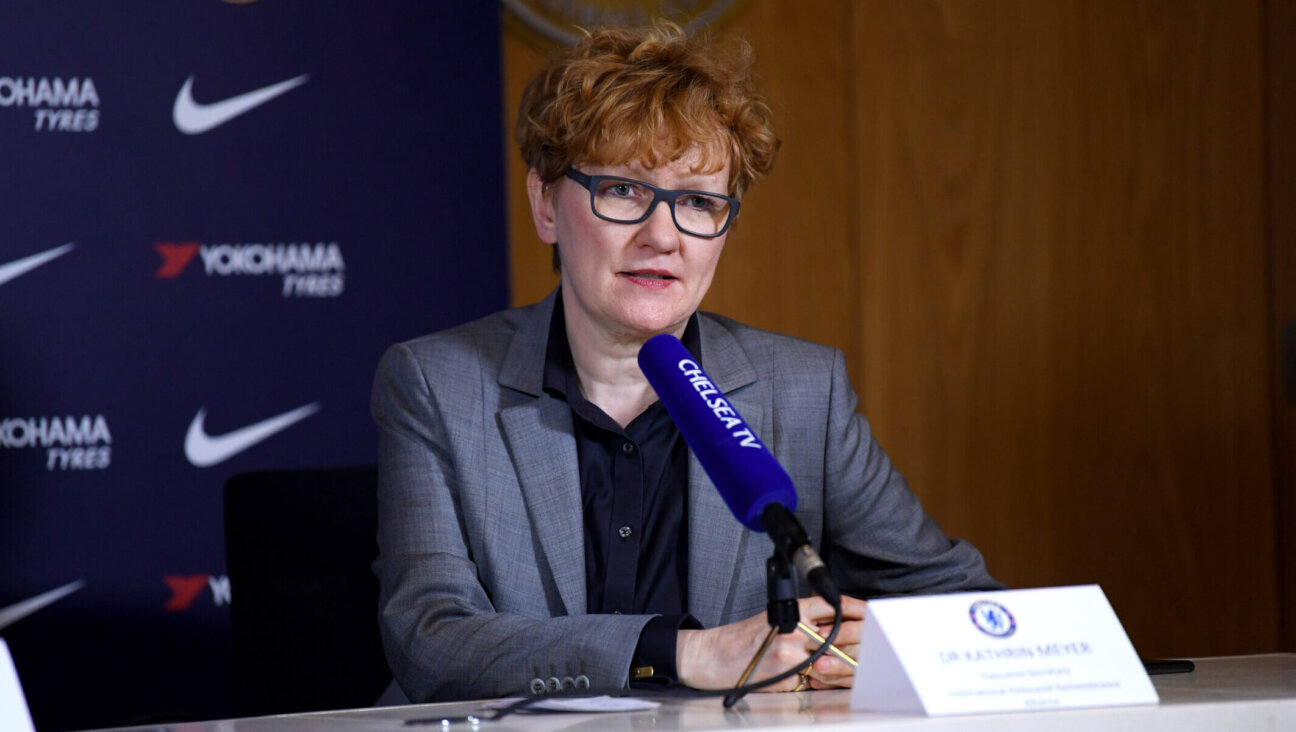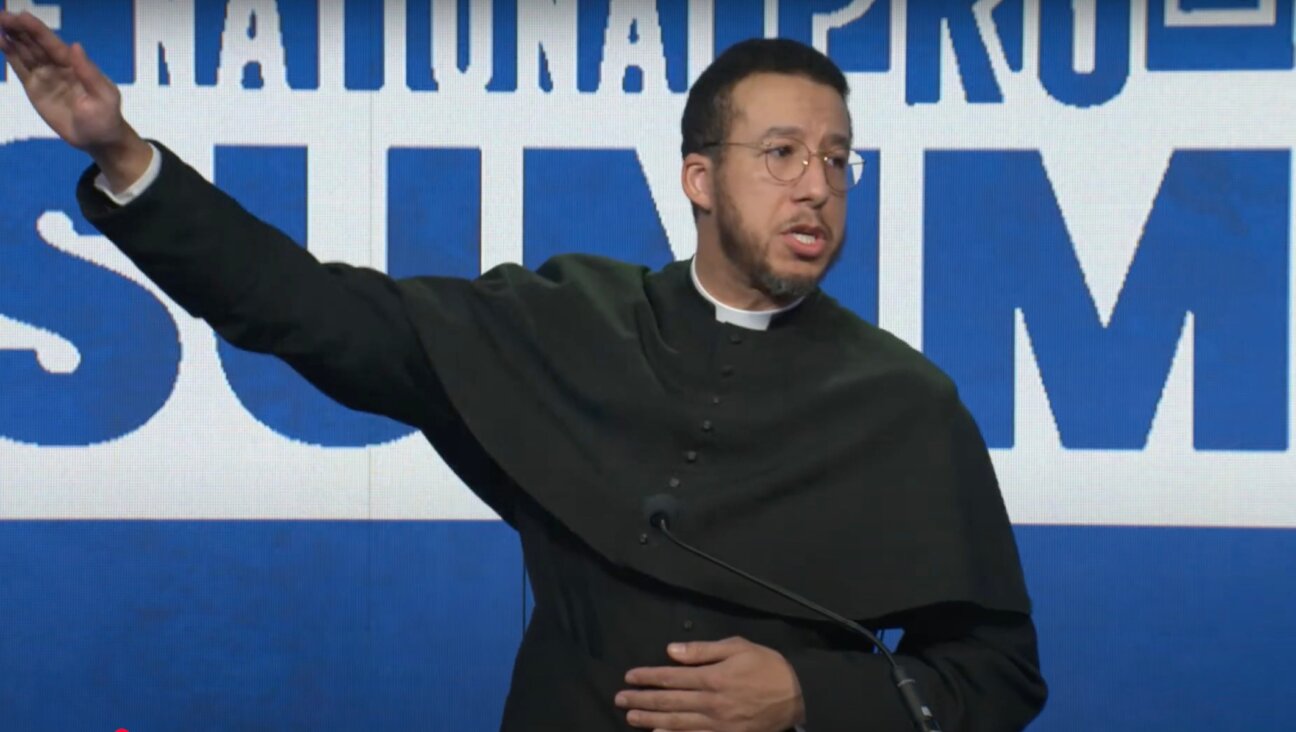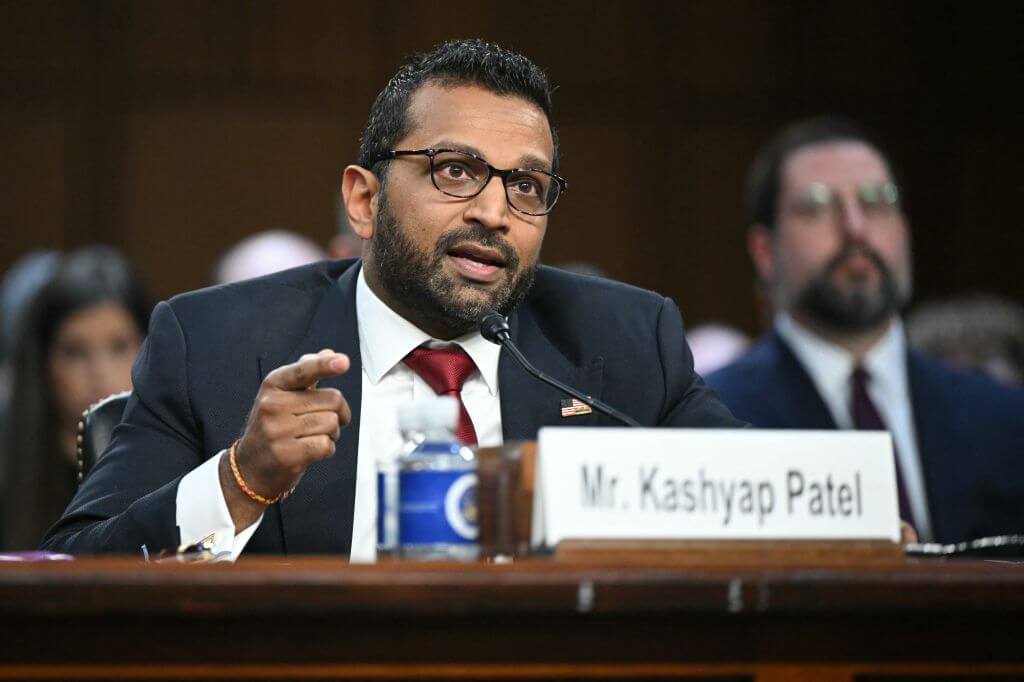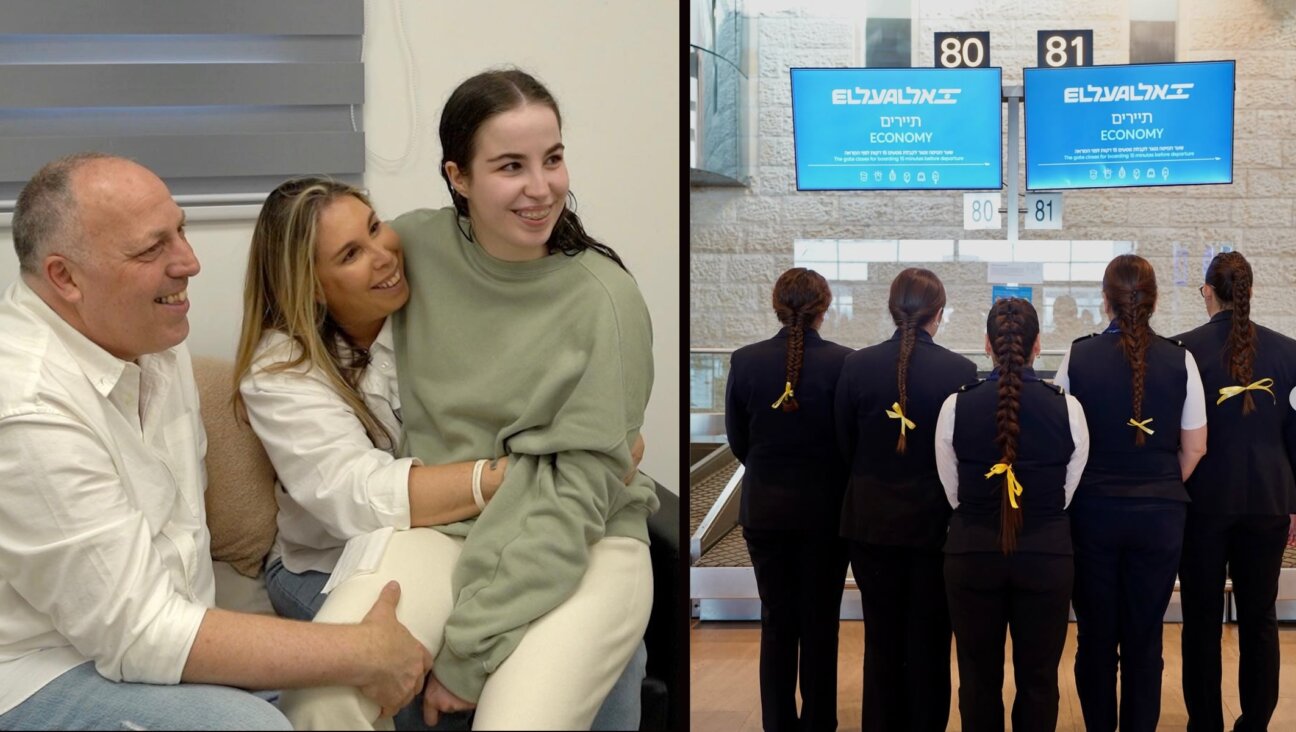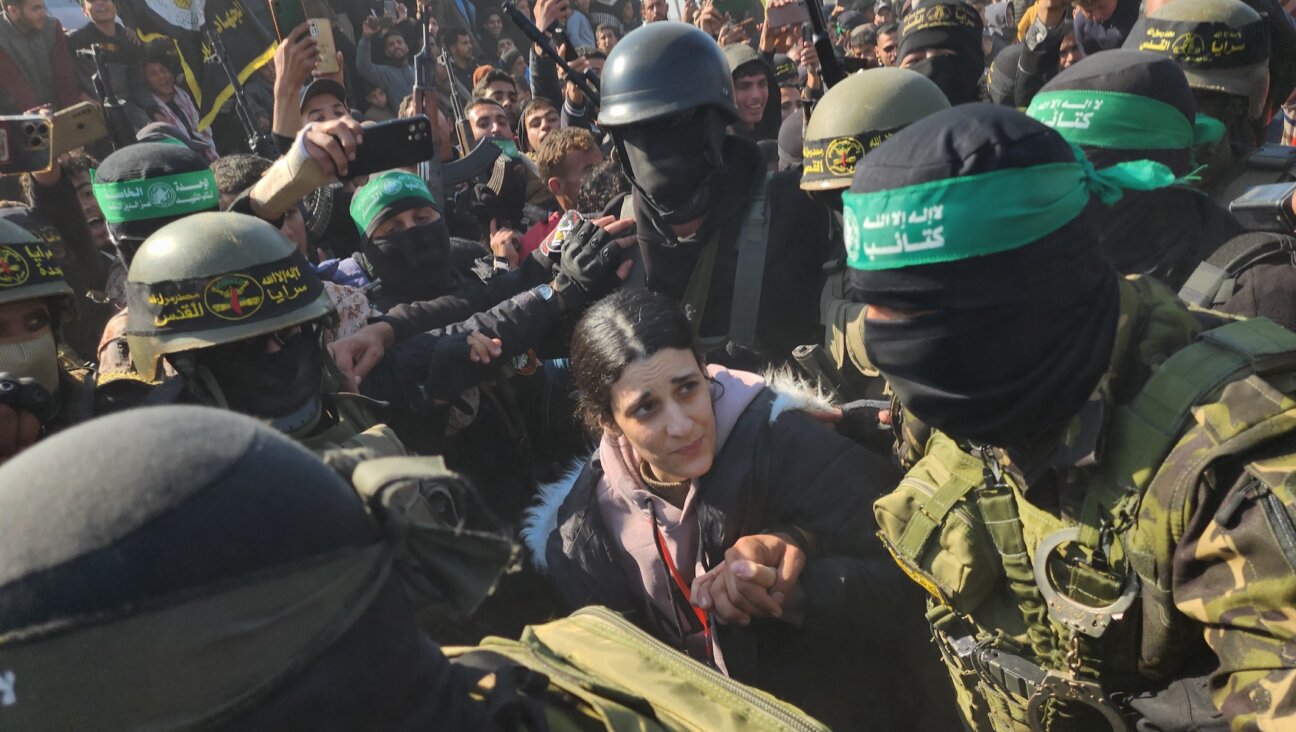With ‘Road Map’ Set, Battle Shifts To Its Implementation
Having apparently failed to secure any changes to the internationally sponsored “road map” to peace, Israel and its supporters in Washington are gearing up for diplomatic battles over the plan’s implementation.
The Israeli government said this week that it would submit 15 proposed amendments to the document, which is expected to be released within weeks, after the formation of a new Palestinian government. Diplomats and observers told the Forward that Jerusalem is not expecting to succeed in changing the text of the current draft, however. Israeli officials simply are jockeying for diplomatic position in the upcoming battles over how the plan is interpreted and implemented.
In particular, observers said, Israel and its allies are working to deny the United Nations, European Union and Russia — which along with the United States comprise the Madrid Quartet that drafted the road map — any significant role in evaluating the plan’s implementation.
“The Israelis know the road map document will be out and they are already positioning themselves on the crucial next steps,” said a Western diplomat involved in the talks. “The number one issue — and a very sensitive one — is the monitoring mechanism of the road map.”
According to diplomats, quartet members reached an understanding that the monitoring should be done by the international parties backing the plan, rather than by the Israelis and the Palestinians. The goal, observers said, is to avoid a repeat of the failed implementation of the earlier Mitchell plan.
Under the plan proposed by former senator George Mitchell in May 2001, the United States essentially allowed Israel to judge the question of Palestinian compliance and to put conditions on the implementation of the earlier plan, eventually dooming it.
“The E.U., the U.N. and Russia _ ‘the trio’ — made it clear that it wanted the monitoring out of Israeli hands to avoid a Mitchell redux — and the Americans agreed in principle that an international entity should judge,” one European diplomat said.
But in a bow to Israel’s worries about the intentions of the U.N., E.U and Russia, the quartet agreed on the need to have an American-led monitoring mechanism.
“The quartet will judge compliance through an American-led mechanism,” said Javier Sancho, a spokesman for Miguel Moratinos, the E.U. envoy to the Middle East, a point confirmed by several Western diplomats. “We are fully aware that this is very sensitive for Israel.”
Foreign Minister Silvan Shalom said Sunday that Israel wants the United States, and not the quartet, to verify the implementation of the agreement. However, a Western diplomat involved in the discussions said that the Israeli government is signalling its willingness to “accept the idea of an international, American-led structure.”
Stephen P. Cohen, a consultant with the pro-Oslo Israeli Policy Forum, said that such a model would allow Israel to see the process as an American-led one, while the Palestinians and the international community could see it as a quartet effort.
During the last month, a draft document outlining the monitoring mechanism has been circulating among quartet members. Diplomats said that the Bush administration was set to propose a finalized version following interagency consultations between the State Department and the National Security Council.
But an American official said he was not aware of such discussions.
One Western diplomat at the U.N., reading from a draft document, described to the Forward the main outlines of the mechanism. Another diplomat privy to the discussions confirmed this account.
The current plan calls for the formation of a Jerusalem-based monitoring committee to be headed by an American who would report to the quartet. It is still unclear how it would make decisions, but consensus is the preferred option, the diplomat said. The proposed monitoring committee would oversee four subcommittees dealing respectively with security, reform, humanitarian issues and miscellaneous issues, possibly including settlements and incitement. Each subcommittee would be headed by a quartet member — with the United States at the helm of the security committee.
One Western diplomat said that the Bush administration was supposed to submit a selection of names for the American head of the monitoring team, and would like to announce the nominee at the same time that the monitoring plan is unveiled.
“We will need a diplomat who is a project manager,” the diplomat said. “But he should be someone welcomed by Israel.”
A senior official at a Jewish organization expressed confidence that the United States will have the dominating role and stave off the other members of the quartet. Meanwhile, pro-Israel lobbyists in Washington said that they have recently received indications from American officials that the administration will be responsive to Israeli concerns about the road map.
While quartet members were able to find common ground on the road map document and the monitoring mechanism, cracks are likely to appear in the future. For instance, while the U.N., E.U. and Russia see the road map as a series of parallel steps to be taken by Israel and the Palestinians, Jerusalem wants a sequenced approach, first requiring Palestinian action against violence. The Bush administration has not taken a clear stance on the issue.
The American Israel Public Affairs Committee sent nearly 3,000 people to Capitol Hill last week, each asking congressmen to sign letters to President Bush asking him to reject calls for a road map that demands Israeli concessions up front.
At the same time, the Israel Policy Forum and Americans for Peace Now were faxing legislators’ offices and holding background briefings, calling the current road map the best available policy and urging lawmakers not to place conditions on progress toward peace.
The current draft of the road map talks of “parallel steps unless indicated otherwise” and at some point of “reciprocal steps.” This should provide the administration with some diplomatic wiggle room, but is also likely to fuel disputes among quartet members.
“There is a loophole there and we know this will be the key issue,” a Western diplomat said.
For instance, the road map states that following a comprehensive cease fire Israel should “immediately” dismantle settlement outposts erected since March 2001 and freeze all settlement activity, including construction for natural growth. But Sharon told the Israeli cabinet Sunday that there was absolutely no reason to discuss the settlement issue right now.
The United States has been at odds with the other quartet members since the current version of the road map was drafted in December. The other three partners initially pushed for the immediate release of the document, but the Bush administration kept delaying, insisting first on the need to wait for the result of the Israeli elections and then the beginning of Palestinian political reform.
The debate over when to release the plan did not prevent negotiations over the monitoring mechanism. After the E.U. submitted a first draft, the U.N. and the United States also presented drafts. During the last month the parties have put the finishing touches on a final document outlining the monitoring mechanism, and are awaiting for the administration to weigh in on several issues.
The parties are still discussing how to release the actual road map.
The general idea is to have a public declaration by the quartet, followed by the handing of the document to the parties by quartet envoys. However, diplomats said, Israel wants to receive the document from the United States, and not the quartet. In the case of the Palestinians, the tricky issue is how to deal with the new dual leadership structure. The current thinking is to hand the document to newly appointed prime minister Abu Mazen and a copy to Yasser Arafat.
A message from our Publisher & CEO Rachel Fishman Feddersen

I hope you appreciated this article. Before you go, I’d like to ask you to please support the Forward’s award-winning, nonprofit journalism so that we can be prepared for whatever news 2025 brings.
At a time when other newsrooms are closing or cutting back, the Forward has removed its paywall and invested additional resources to report on the ground from Israel and around the U.S. on the impact of the war, rising antisemitism and polarized discourse.
Readers like you make it all possible. Support our work by becoming a Forward Member and connect with our journalism and your community.
— Rachel Fishman Feddersen, Publisher and CEO










